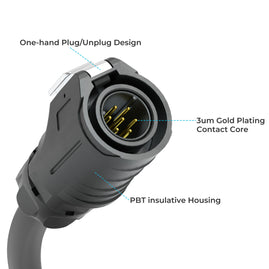
The scrap car network industry, often referred to as “Cash for Clunkers,” is a dynamic and intriguing sector within the automotive recycling world. It involves the buying and scrapping of old, inefficient, and unwanted vehicles, offering owners a financial incentive while promoting environmental sustainability. In this article, we’ll unveil the secrets of the scrap car network industry, exploring its origins, benefits, and the process behind transforming clunkers into cash.
The Origins of Cash for Clunkers
The concept of Cash for Clunkers originated as a government program aimed at stimulating the automotive industry while reducing carbon emissions. The most notable example of this program was the “Car Allowance Rebate System” (CARS) introduced in the United States in 2009. Under CARS, individuals were encouraged to trade in their old, fuel-inefficient vehicles for more fuel-efficient models by offering financial incentives.
The Benefits of Cash for Clunkers
The Cash for Clunkers approach offers several benefits for both vehicle owners and the environment:
Financial Incentives for Vehicle Owners
One of the primary benefits of Cash for Clunkers is the financial incentive it provides to vehicle owners. By trading in their old vehicles, owners receive cash or credit toward the purchase of a new, more fuel-efficient model. This helps offset the cost of a new vehicle and encourages the adoption of environmentally friendly transportation options.
Environmental Impact Reduction
Cash for Clunkers programs contribute to reducing the environmental impact of transportation in several ways:
- Removal of inefficient vehicles: Old, fuel-inefficient vehicles are retired from the road, reducing greenhouse gas emissions and improving air quality.
- Promotion of fuel efficiency: By incentivizing the purchase of more fuel-efficient vehicles, Cash for Clunkers programs encourage the use of cars with lower carbon footprints.
- Scrap car recycling: The scrapped vehicles go through an environmentally responsible recycling process, minimizing waste and conserving resources.
Economic Stimulus and Job Creation
Cash for Clunkers programs also provide economic benefits by stimulating the automotive industry and creating job opportunities. The increased demand for new vehicles boosts car sales, manufacturing, and dealership operations. Additionally, the recycling and dismantling of clunkers create employment opportunities in the automotive recycling sector.
The Process of Cash for Clunkers
The process behind Cash for Clunkers involves several key steps:
Vehicle Eligibility and Evaluation
To participate in a Cash for Clunkers program, vehicles must meet certain eligibility criteria. These criteria typically include age, mileage, and fuel efficiency standards. Once a vehicle qualifies, it undergoes an evaluation to determine its value based on factors such as make, model, condition, and salvageable parts.
Trade-In and Financial Compensation
After the evaluation, vehicle owners can trade in their eligible clunker and receive financial compensation. The compensation can be in the form of cash, a credit toward the purchase of a new vehicle, or a combination of both, depending on the program’s specific rules.
Vehicle Disposal and Recycling
Once the clunker is traded in, it enters the recycling phase. The vehicle is dismantled, and salvageable parts are carefully removed for resale or reuse. Hazardous materials and fluids are disposed of responsibly, adhering to environmental regulations. The remaining materials, including metals, are recycled to minimize waste and promote resource conservation.
New Vehicle Purchases
With their financial compensation in hand, vehicle owners can explore purchasing new, more fuel-efficient vehicles. This step contributes to the overall goal of reducing carbon emissions and promoting sustainable transportation options.
Conclusion
Cash for Clunkers programs within the scrap car network industry have revolutionized the way we view old, inefficient vehicles. By offering financial incentives, reducing environmental impact, stimulating the economy, and promoting sustainable transportation, these programs have gained popularity worldwide. So, if you have a clunker sitting in your driveway, consider exploring the possibilities offered by Cash for Clunkers. You’ll not only receive financial compensation but also contribute to a greener and more sustainable future.









Comments